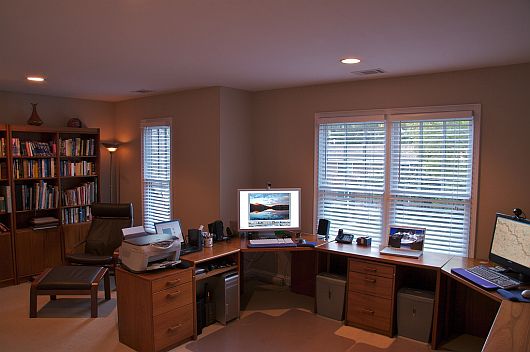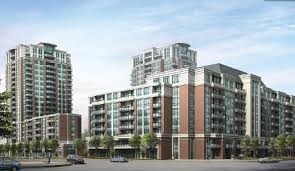Table of Contents
Introduction: The Growing Demand for Residential Properties
Residential properties are a key segment in the real estate market, playing an essential role in the housing and investment landscape. Whether you are a first-time buyer, a seasoned investor, or simply someone curious about residential properties, understanding the various facets of this market is crucial. In this guide, we will explore the types of residential properties, factors influencing their value, and tips for buying or investing in them.
What Are Residential Properties?
Residential properties refer to any real estate designed for people to live in. These properties are primarily meant to provide shelter and comfort for individuals and families. They include single-family homes, condominiums, apartments, townhouses, and multi-family units, among others.
Residential properties come in a wide range of styles, sizes, and price points. The market for residential real estate is dynamic and varies based on location, demand, and economic conditions.
Types of Residential Properties
Single-Family Homes
Single-family homes are standalone properties designed to house one family. These homes are typically larger and offer more privacy and space compared to other types of residential properties. They are highly sought after in suburban areas and offer the possibility of owning a piece of land.
Condominiums (Condos)
Condos are individual units within a larger building or complex. They offer a more affordable housing option in urban areas and are ideal for those who want to enjoy a community lifestyle with shared amenities such as swimming pools, gyms, and security services. However, condo owners must pay monthly maintenance fees for these shared amenities.
Apartments
Apartments are rental units within a larger building or complex. Unlike condominiums, apartments are generally owned by a landlord or property management company, and tenants lease the space for a specified period. Apartments can vary in size and amenities, making them suitable for individuals, couples, and small families.
Townhouses
Townhouses are multi-level homes that share one or two walls with neighboring units. They provide a good balance between the privacy of single-family homes and the affordability of condos or apartments. Townhouses often have small yards or patios, making them a popular choice for urban dwellers.
Multi-Family Homes
Multi-family homes are buildings designed to house multiple families in separate living spaces. These properties can consist of duplexes, triplexes, or larger apartment complexes. Multi-family homes are an attractive option for investors looking to generate rental income.
Factors Influencing the Value of Residential Properties
The value of residential properties can fluctuate due to various factors. Understanding these factors is essential for making informed decisions when buying or investing in real estate.
Location
The location of a property is one of the most significant factors affecting its value. Proximity to amenities such as schools, shopping centers, transportation, and recreational areas can significantly boost the value of a residential property. Additionally, areas with lower crime rates and high demand for housing are typically more expensive.
Economic Conditions
The broader economy plays a crucial role in shaping the real estate market. Economic growth tends to drive demand for residential properties, while recessions can lead to a decrease in property values. Mortgage rates, inflation, and employment rates are all factors that can influence the real estate market.
Property Size and Features
Larger homes with more bedrooms and bathrooms typically command higher prices. The presence of modern features such as updated kitchens, energy-efficient appliances, and smart home technology can also increase a property’s value.
Market Demand and Supply
The balance between demand and supply in the residential property market has a direct impact on prices. When demand exceeds supply, property prices tend to rise, and vice versa. Local housing markets can experience fluctuations based on population growth, new developments, and overall interest in the area.
Tips for Buying Residential Properties
Whether you are purchasing your first home or adding to your investment portfolio, the process of buying residential properties can be complex. Here are some valuable tips to guide you:
Do Your Research
Before making any decisions, it’s crucial to research the local housing market. Analyze trends in property prices, neighborhood amenities, and future developments. Researching online listings, speaking with local real estate agents, and visiting the area will give you a better understanding of what to expect.
Set a Budget
Establishing a budget is essential to ensure that you don’t overspend or take on too much debt. Factor in additional costs such as property taxes, insurance, and maintenance when determining your budget. It’s advisable to get pre-approved for a mortgage to help you understand your financial limitations.
Inspect the Property
Whether you are buying a home for personal use or investment purposes, always schedule a professional inspection before closing the deal. An inspection can identify potential issues with the property, such as structural damage, plumbing issues, or faulty electrical systems, which can affect the property’s value.
Consider Long-Term Value
When purchasing a residential property, it’s important to consider its long-term potential. This includes evaluating the area’s growth prospects, infrastructure development, and potential for rental income if you’re looking to invest.
Conclusion: The Importance of Residential Properties in the Real Estate Market
Residential properties play a vital role in both the real estate market and the broader economy. Whether you’re a first-time buyer or a seasoned investor, understanding the different types of residential properties, factors that influence their value, and tips for purchasing them will help you make informed decisions.
By keeping an eye on market trends, doing thorough research, and carefully considering your long-term goals, you can navigate the residential property market successfully and make choices that align with your needs and financial objectives.








